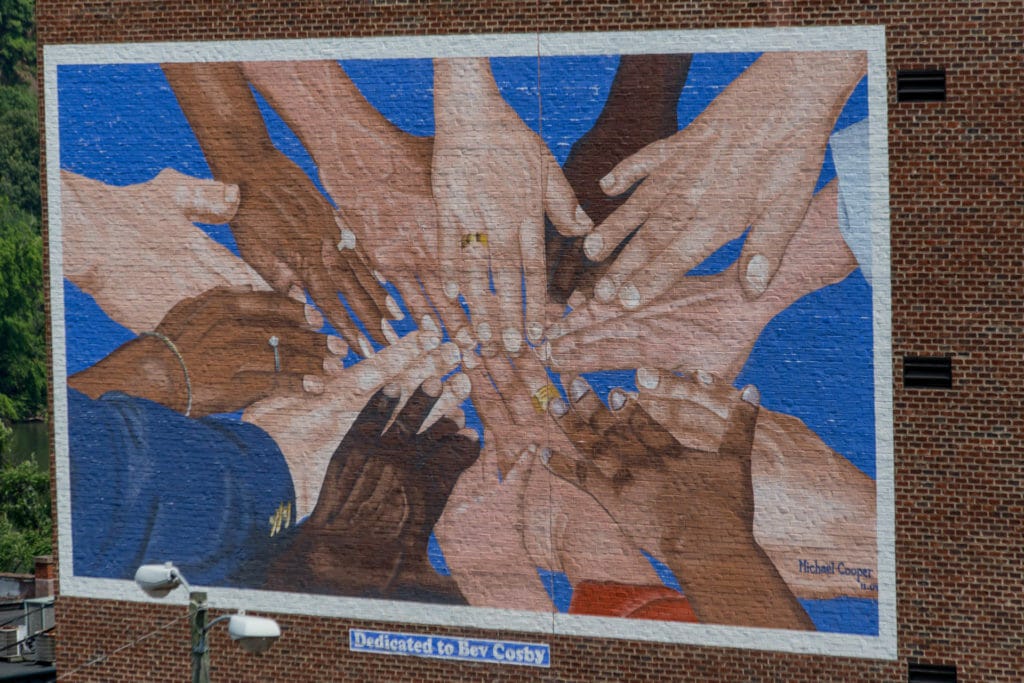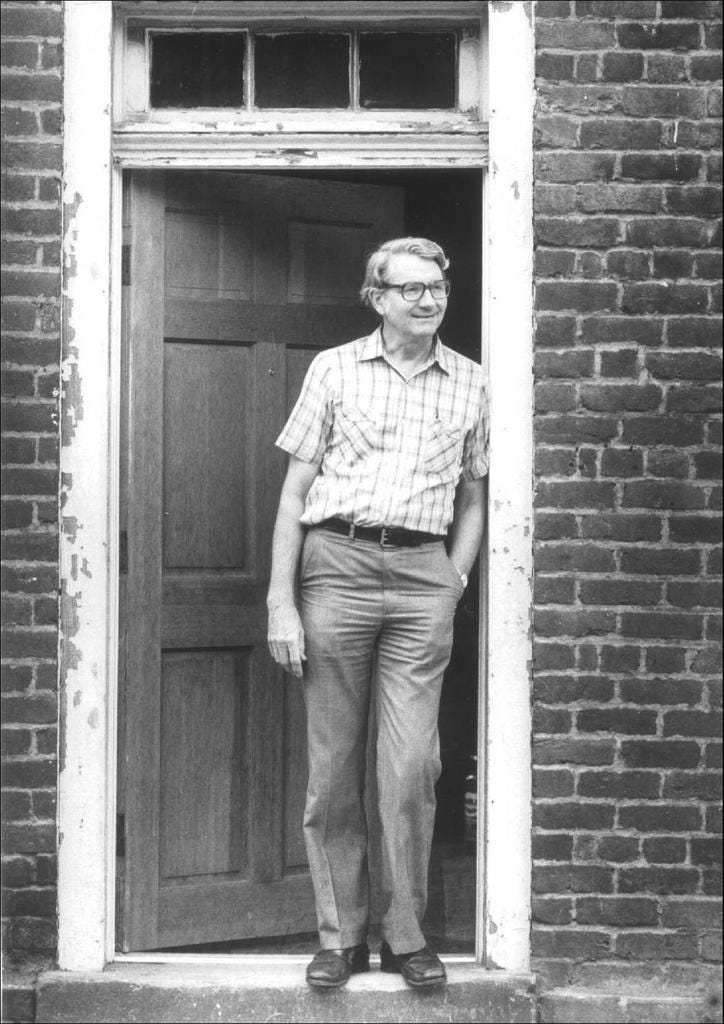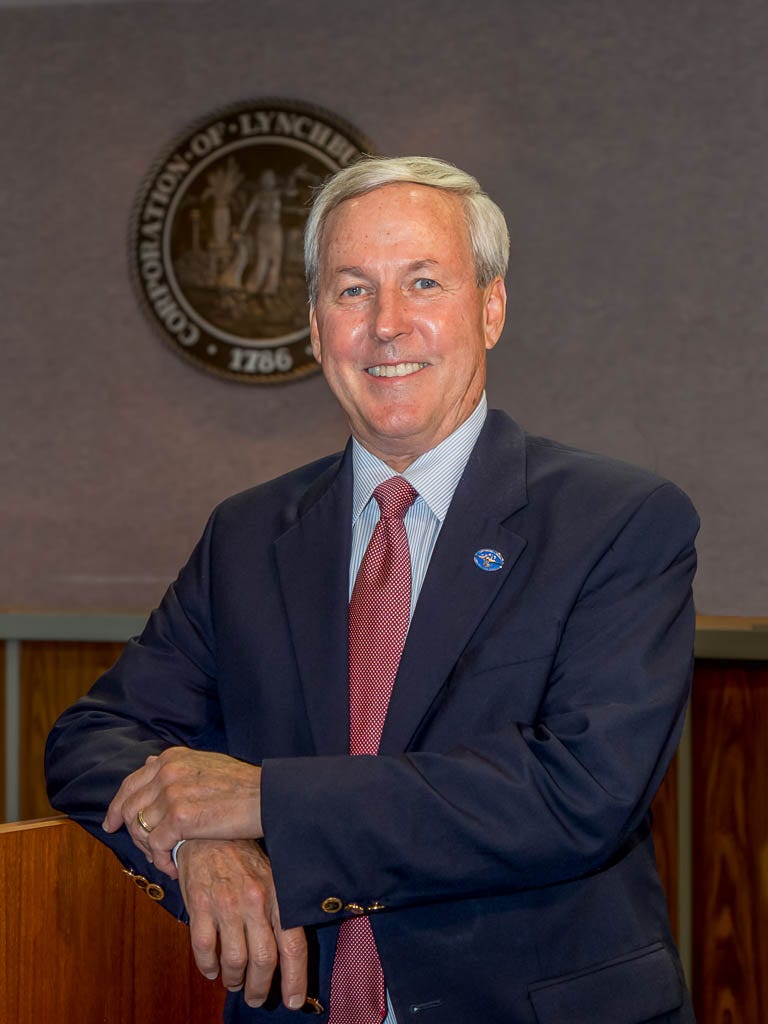Day 14: Desegregating Lynchburg's Swimming Pools
Bev Cosby, a Moral Compass for Our City: A Tribute from Retired Councilman Randy Nelson
A version of this post was presented at the celebration of the 60th Anniversary of Camp Kum-Ba-Yah's pool integration, held at Camp KBY on July 3, 2021. The message influenced Endstation Theatre Company's production of the play, "Buried Deep—The Closing of Lynchburg's Pools.
I was ten years old in June 1961, and the Church of the Covenant and Lynchburg Christian Fellowship, now Lynchburg Covenant Fellowship (LCF), had just opened a new swimming pool for its members, LCF campers, and neighborhood families.
By July 1961, my two brothers, Joe and Mitch, and I were among the white neighborhood boys who routinely swam in that pool. Us boys who swam together had been close friends for several years, but none of us knew that Lynchburg had recently closed its public pools when African Americans sought entry into the “whites only” segregated pool at Miller Park.

On a hot July afternoon, unfamiliar African American children and adults entered the LCF pool where I swam with my brothers and friends. Most of our white neighborhood friends frantically exited the pool and stood outside the fence, watching the few of us who remained inside.
My brothers and I were among those who did not leave the pool. Our white friends standing outside the fence became angry that African Americans were swimming there. They shouted obscenities and crudely gestured toward our new guests and toward those of us who remained in the pool.
Reverend Bev Cosby soon walked from the church building to speak with everyone. Some of the white children’s parents arrived and began arguing and protesting “the damage” that Bev was causing to the pool by allowing African Americans to swim in it.
In his usual kind and pleasant manner, Bev invited the protesting parents and children to reenter the pool and enjoy a swim. Bev’s invitations were met with obscenities and even greater scorn.
I could not hear exactly what Bev was saying to the white children and their parents outside the fence, but Bev later told me that he had assured them to “please go on in for a swim” and that “the water is fine.”
My brothers and I were scorned and ridiculed by our white friends and neighbors on that day and for a long time after.
They called us “communists,” “n _ _ _ _-lovers,” and “traitors.” They spit and threw rocks at us and our house and vandalized our belongings. Threatening phone calls were made to our house.
Meanwhile, my brothers and I found friendships among our new pool guests on that day, and we gained lifelong insights into the harm and barriers that personal and societal prejudices impose. More significantly, we had a rare opportunity to observe and participate in a small effort to reverse institutional wrongs.
Bev Cosby’s lifelong ministry sought to eliminate human barriers. He zealously sought to help everyone appreciate, as he phrased it, the "Specialness of Difference” and "the gifts" each person possesses—not only to improve themselves but to benefit the entire community.
While that occasion at the LCF pool was almost spontaneous and may have been a relatively minor event, it strategically moved the needle of Lynchburg’s moral compass and social consciousness.
If you never knew Bev Cosby, I assure you that he was never satisfied with past accomplishments. He felt an urgency to undertake every challenge, to take the next step to make life better for every person in our city.
Of course, Bev never took credit for his seemingly endless chain of victories in helping others, but I most confidently tell you that Bev would be pleased that today, six decades later, we recognize his courageous seizure of an unforeseen opportunity to change the hearts, consciousness and perspectives of so many people who were no longer willing to be captives of a grossly segregated community. Yes, in his unique way, Bev Cosby gently allowed people to confront the foolishness of their biases, and bravely move toward greater inclusivity.
My two brothers, our white friends, and I had probably never heard the words “Jim Crow” or experienced the trauma of racial discrimination before that day. But, for those of us on that afternoon and over the following months, we had a precious chance to internalize a small portion of the overwhelming stigma and humiliation felt by those who suffer racial discrimination.
We gained tangible insights into how prejudices lead people to say and do hurtful and destructive things for no rational purpose. The lessons of those days were not convenient, but my brothers and I were proud to have behaved as we had been taught. Yes, those of us who knew Bev Cosby were fortunately guided by his values and witnessed his ministries, on that day and on so many others, both before and afterwards.

It is fitting that in 1965, Lynchburg’s City Council conducted a public hearing and voted to construct two new integrated public swimming pools. My father, Joseph L. Nelson, Jr., was a vocal advocate at that City Council hearing. In the City Council meeting approving that decision, Mayor James P. Ould cast the deciding vote. That fittingness lies in that Mayor Ould was one of the founders of this Camp, of the Church of The Covenant and LCF. He resided in the upstairs of that Church building during the 1950’s and was a close friend of the Cosby family.
The vision and values of Camp Kum-Ba-Yah, that church, and so many other churches and progressive interests were gradually woven into the fabric of our city’s values. They made a remarkable difference in the lives of Lynchburg’s citizens and those far beyond. Our city’s moral character is extraordinarily different from that of 1961. In so many respects, the day the LCF pool integrated was a metaphorical “Independence Day” for the moral conscience of our city.
John Randolph “Randy” Nelson practiced law in Lynchburg, Va. for 48 years. He was an accomplished college soccer player and coach. He recently retired from serving four terms on the Lynchburg City Council; held a multitude of leadership positions with local non-profit entities and within the legal profession; been recognized by the Va. Supreme Court, the Va. State Bar, and Va. Legal Aid Society for “exemplary legal services to Virginia’s courts, its citizens, expanding legal services to the poor and embodying the highest tradition of personal and professional excellence in Virginia.






There are not many in the world like Bev Cosby, a truly wonderful human.